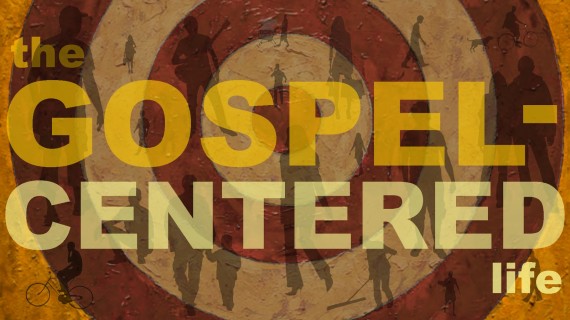I suggested yesterday that the Gospel is about all of life, and seeing the ever-increasing expansion of the rule and reign of God in our own lives. If this is true, in what we say, what we do, and how we act, then what does this mean for evangelism?

What is Evangelism?
Well, it might be helpful to note that in Scripture, the words evangelism and gospel are essentially the same words. Frankly, I wish our Bible translators had shown this connection better, as it would have cleared up a lot of confusion about what the Gospel is and how to do evangelism. Both words come from the Greek root evangel. Our word evangelism is not even a translation from the Greek! And as for the word “Gospel,” it is not the best translation either, but is a hybrid of Old English and German and means “good story” or “good message.”
So the problem with translating the evangel word family is that there are not any good English words to translate it to. In the days of Jesus and the apostles, evangel referred to a good message which had immediate and lifelong positive implications for those who heard it. It was an announcement of liberty to the captives and freedom for the oppressed. It was the announcement that the enemy had been defeated, the war had been won. It was the declaration that the old ruthless and evil king had died, and a new king of peace, righteousness, and justice now sat on the throne.
When someone heard this message, their lives would be forever different. The good message was so revolutionary that the simple act of telling it to others caused great joy and brought great freedom to all who heard it.
The Gutted Gospel
But the typical evangelistic message of today does no such thing. Why not? For two reasons. First, we are leaving out most of the message. The typical gospel presentation shares a few facts about a man named Jesus who lived 2000 years ago, and then a few facts about what happens to us after death as a result, but leaves out everything relating to our life here and now. As such, the Gospel has been gutted of most of its persuasive power.
And among those who do believe this pared-down gospel, there is no urgency to let the rule and reign of God expand in their lives, because this past and future Gospel isn’t concerned with the here and now. And when lives don’t change, and people do not reflect the love and peace of Jesus Christ, then our gospel presentations lose even more power, because the people we are talking to do not see why any of it matters. When we are not changed by the Gospel, they are not persuaded to believe the Gospel.
The Gospel is about All of Life
But when we begin to understand that the Gospel is about all of life, not just the past and the future, then we begin to view evangelism differently also. When we remember that the words “Gospel” and “evangelism” are based on the same words, and when we realize that the Gospel is about all of life, then we begin to realize that evangelism is about all of life also. We begin to see that evangelism is not just something that takes place in a church with a preacher up front, or on a street corner passing out tracts, but is also something that takes place when we perform our jobs at work, when we fill out our taxes, and buy groceries, and watch a football game with our neighbor. If the Gospel is concerned with all of life, then the Gospel affects how we act and behave in all of life’s situations, and therefore, everything we are doing is, by definition, evangelistic.




Jeremy,
This is exactly where I have come to in my own definition of evangelism. Living our lives in a way that (hopefully) reflects the gospel message in everything we do, and drawing those we come into contact with along the way closer to or deeper into relationship with God.
Love what you are doing here.
FedEx,
President,
Men of Praise Motorcycle Ministry
Thanks FedEx,
Yes, it is all part of a process. A long process, built around relationships.
“True evangelical faith cannot lie dormant. It clothes the naked, it feeds the hungry, it comforts the sorrowful, it shelters the destitute, it serves those that harm it, it binds up that which is wounded, it has become all things to all people.” (Menno Simons)
What a great quote! Are you Mennonite?
Jeremy…Yes! When I hear preacher try to guilt people into doing the ‘bullhorn’ or ‘shoving tract in people’s hands’ forms of so-called evangelism, I always think. “Wait. That’s not how the church grew in Acts 2 – 4. Those who observed the early followers living their lives in this new way, they were drawn in and God added to the church daily…..”
(btw, this is the blogger formerly known as Katherine Gunn 🙂 )
Katherine-Jeannette!
Wow! Who are you!?
Ha ha!
Why the name change?
Anyway, yes, Acts 2-4, as well as the entire life of Jesus, are great examples of this.
Name change = I have healed enough and gained strength enough to not feel the need to use a pseudonym anymore. 🙂
Awesome sister! Awesome God (Great Physician)!!!
M.